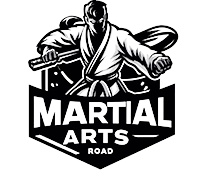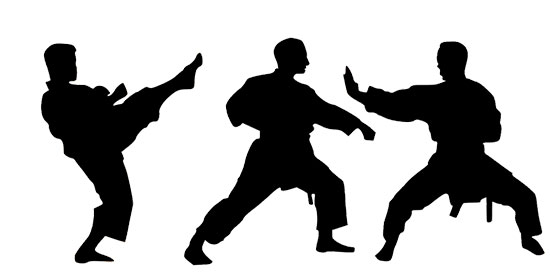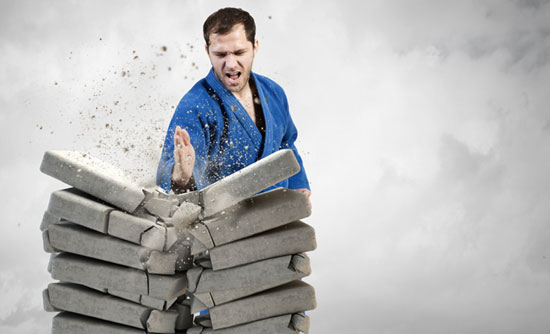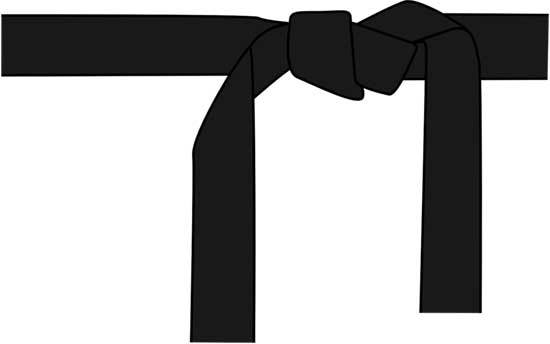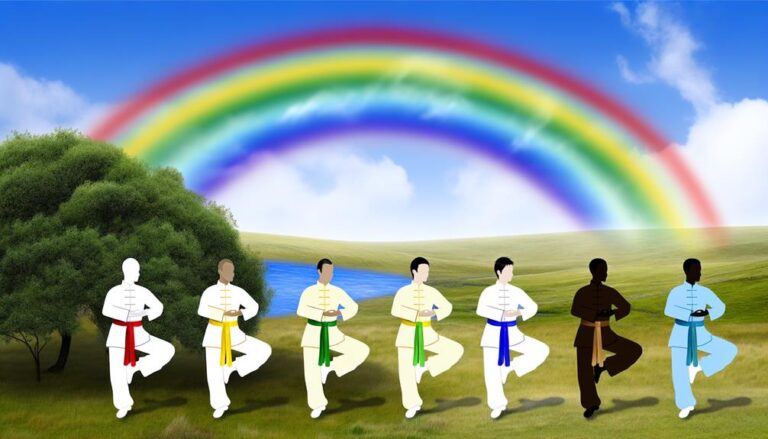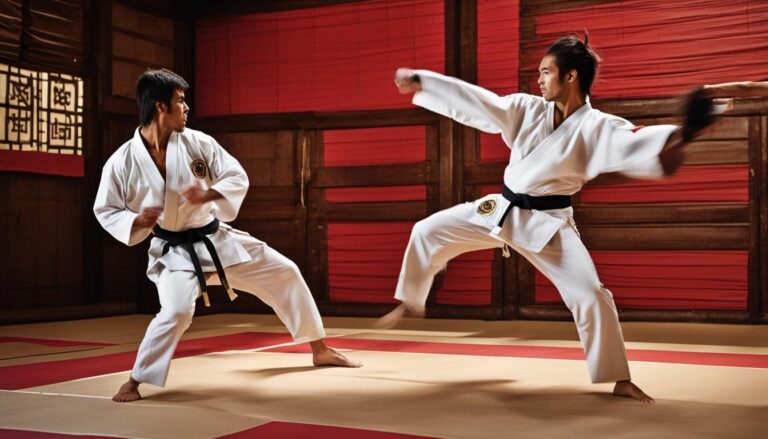While Karate might be more popular than Ninjutsu, it’s important to remember that both of these styles of martial arts were extremely popular in the past and gained a widespread following among all demographics.
Furthermore, Karate is derived from Ninjutsu and adapted into different styles such as Aikido, Judo, Kendo, and Tai chi. To get a better idea of what each style entails, read on.
Common differences between Ninjutsu vs. Karate
The primary goal of Ninjutsu is to hide and avoid conflict, whereas the goal of Karate is to train for combat situations.
These two goals define their differences. Specialized Karate teachers are better suited to train you in combat than a general Ninjutsu teacher.
Contents
What does Ninjutsu Entail?
The martial art of Ninjutsu is a collection of esoteric traditions that originated in Japan. The term “Ninjutsu” is derived from the Japanese words “nin” meaning “person” or “human being,” and “jutsu”, meaning “art.”
Practitioners are referred to as Ninjas, Ninja Shinobi, or simply Ninjas. Ninjutsu is a martial art that uses stealth and cunning to overcome an opponent.
It is a skillful combination of character, mental, and physical abilities. The essence of Ninjutsu is not just how to deal with conflict but also how to deal with life.
The art and practice of Ninjutsu can be traced back several centuries. In Japan, Ninjutsu was practiced by a wide variety of people, from the Samurai warrior class to the ordinary citizen.
The people who practiced Ninjutsu dealt with conflicts differently from the feudal mode of thinking that dominated Japanese society at the time.
Ninjutsu was never a secret art. Its existence and practice were known to all members of traditional society as well as its practitioners.
Pros
Ninjutsu encompasses many physical, mental, and spiritual attributes making it more encompassing than many other martial arts styles. Some of its advantages are;
- Ninjutsu is one of the most complete martial arts systems in the world
- Ninjutsu will strengthen both your body and your mind
- Unlike other martial arts, Ninjutsu is not about developing as a fighter. It is about developing as a person. This is how you become stronger.
- Unlike other philosophical or moral paths, Ninjutsu will make you more confident in yourself and life.
- It builds character by introducing you to various situations that will teach you to be responsible for your actions.
Cons
- Ninja training is not something that you do alone. Ninjutsu is an art that uses cooperative training to create something greater than the sum of its parts.
- If you try to learn Ninjutsu by yourself, without the guidance of a teacher, it will be hard for you to understand all the nuances of this art.
- There are few people qualified to teach this martial art today. New students must seek a qualified teacher before they can begin their training.
What Does Karate Entail?
Karate is an ancient Japanese martial art developed for close combat fighting using punching, kicking, knee strikes, elbow strikes, and open-hand techniques such as palm strikes and finger jabbing actions.
The word “Karate” is derived from the Japanese words kara, meaning “empty” or “nothingness,” and the meaning “hand,” Karate is a martial art that emphasizes strike-based attacks such as punching, kicking knee strikes, and elbow strikes with an open hand.
Many styles of Karate also incorporate grappling throws (tai-sabaki) and some striking techniques to the face (while many other styles never target the head).
The early Okinawan styles of Karate are often called Shorin-Ryu, meaning that the techniques are for use by two people (fighting and training).
The main target of most Karate techniques is the central nervous system, which is why finger jabbing, open-hand strikes, and elbow strikes should always be avoided. In fact, all parts of the body should be used in realistic maneuvers.
The primary goal of Karate practice is to improve the ability to strike efficiently against an opponent. Karate training is focused on hitting and evading strikes to the face and body, as well as countering and counter-attacking.
However, like many ancient fighting arts and traditions, Karate includes a wide variety of techniques that address various threats in many different ways. Karate techniques can be used for self-defense.
However, most styles do not train techniques explicitly for such a purpose.
Pros
- Karate is a great martial art for all ages and any fitness level.
- Karate improves balance, flexibility, and coordination.
- It has been proven in Japan and the United States that Karate will make you more physically fit
- It develops one’s character by teaching you to remain calm under pressure.
- Practicing Karate will help to improve your reaction time, increasing your ability to avoid or block an attack.
Cons
- Karate has a very high number of kicks and strikes to the body. The result of this is that there can be a high level of injury. However, this is a side effect of practicing Karate and not the focus of the art itself. The focus should be on fluidity and accuracy, not speed, power or technique.
- Training with weapons such as knives or spears adds extra complexity to training which might be better left to other practices.
- Many styles of Karate strongly emphasize sport-style tournaments called Kumite (meaning “fight”) for young adults and adults. This focus is unnecessary. It can be harmful.
Differences between Ninjutsu vs. Karate
Although both Ninjutsu and Karate were practiced in Japan, the martial arts were quite different at the time.
Ninjutsu is the art of using weapons typically associated with the stealth techniques used by ninjas in feudal Japan.
Although there are several types of weapons included in it, they are not its defining characteristic as they exist throughout most martial arts styles.
Karate is a martial art originating from Japan. It is characterized by strikes, throws, and joint locks with the hands and arms.
The main difference between Ninjutsu and Karate is that Karate is a Japanese martial art, while Ninjutsu originates in Japan.
Karate originates from Okinawa, Japan. Its main focus is on the hands, whereas Ninjutsu incorporates the use of any weapon at hand.
- Each Karate school has its own method of training for the hands and eyes (in the form of various forms/kata). In contrast, in Ninjutsu, there is no such thing as a form or kata.
- Most styles of Karate utilize striking with the hands and feet. In Ninjutsu, this is not the case. Ninjutsu doesn’t stress the need to hit with one’s hands and feet.
- The main goal of Ninjutsu is to hide and avoid conflict, whereas Karate emphasizes training for combat situations
- Ninjutsu focuses on dealing with life situations, whereas Karate focuses on fighting.
- While Karate was practiced for self-defense, Ninjutsu was primarily used to kill an opponent.
- The main difference between these two martial arts is that Ninjutsu has a more sinister history than Karate. Ninjutsu has a very good collection of secret techniques and political assassinations.
Similarities between Ninjutsu vs. Karate
- Both martial arts are based on ancient Japanese fighting traditions.
- They were both practiced in Japan.
- Both Karate and Ninjutsu are rather old-school fighting arts that were completely ignored by the western world for a long time.
- According to records, both Karate and Ninjutsu were used in ancient Japan. However, in different parts of the country.
- Both arts have been introduced to the general public by their Japanese names.
Which Should I Choose? Ninjutsu or Karate?
So we have seen the need for both these techniques, but which to pick? Well, that depends on you and your skill level.
Karate is great for close-range combat and teaches hand movements, but Ninjutsu offers so many more advantages.
One important thing to note is that there are many different types of Ninjutsu, not all related to killing people or being a stealth warrior.
Given the fact that Ninjutsu also encompasses other martial arts, as mentioned above, it’s a great way to get a diverse training regime.
Conclusion
Both of these techniques are great choices. You’ve got a choice of Ninjutsu if you want to have the upper hand in combat.
Ninjutsu is the way to go if you want to learn about martial arts for real-life situations and self-defense.
Karate is great for those looking for a closer range and hands-on martial arts approach. Both martial arts have pros and cons; however, the final decision is yours.
